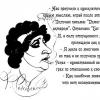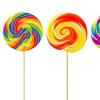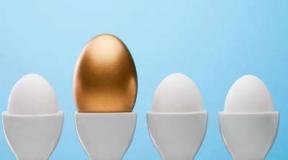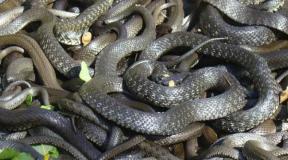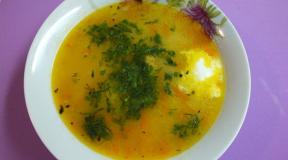Excessive use of honey. Is it possible to get poisoned with honey. Action on detection
In some cases, people get honey poisoning. In such cases, the question of how to eliminate the main symptoms and alleviate the general condition of a person becomes very relevant. Let's consider it in detail.
Honey poisoning is a reaction of the body, which has already been repeatedly noted by doctors, and in various parts of our country. Despite the fact that the beekeeping product is incredibly valuable and useful, it should be used with caution. The main properties of the product can be determined by the plants from which the nectar was collected by the bees - some may well turn out to be poisonous. Together with the delicacy, toxins enter the human body, as a result of which the answer arises to the question of whether it is possible to poison yourself with honey. Consider the symptoms, causes, methods of eliminating the disease, as well as methods of prevention.
A product that can provoke poisoning is called drunk. For example, it is quite possible to get poisoned if you eat up to 100 ml of a treat that was created by bees from the following plants (they are considered poisonous):
- wild rosemary;
- heather;
- dope;
- wolf bast;
- periwinkle, etc.
In this situation, poisoning occurs due to the fact that andromedotoxin negatively affects the body, it does not dissolve, and can have a negative effect on nerve cells. The symptomatology in this case is very similar to alcohol intoxication.
Poisoning reasons:
- Too fast production. The product can be obtained due to the fact that the manufacturer does not comply with the aging period. In this case, it turns out just a watery syrup, which does not contain useful substances. Over time, honey undergoes a two-layer crystallization, and a clear line can be observed between the liquid and the candied composition. Old honey in such a situation will acquire a foreign, sour or alcoholic taste. Many are interested in the question - old honey was found, what can be done with it? It is enough just to leave the jar at room temperature for a long time - all harmful substances will disappear over time.
- Location of apiaries near hazardous areas. Highways, industrial complexes, radioactive sites - all these are unacceptable places for the location of apiaries. Therefore, it is imperative to be interested in where the ingredients for the delicacy are collected.
- Excessive use. An overdose of honey can also provoke poisoning, so experts do not recommend eating more than 150 grams of this product, despite all its usefulness. It is noteworthy that in young children, intoxication can also develop when eating a smaller amount of honey, so this product should be given to the child with caution.
- The expiration date has expired. Many are interested in the question of whether it is possible to eat old honey - in fact, it is undesirable to do this due to the fact that according to GOST there are clear terms during which products can be consumed - no more than 8 months. If packaging was carried out in special sealed packages, in this case, the beekeeping product can be stored for about two years (with a closed container). If any additives are present, the shelf life is then significantly reduced. Can you get poisoned with old honey? Yes, but this happens very rarely.
- Unripe product. During production, a special heating procedure is provided in order to eliminate pollen, plant spores - all this can provoke the appearance of allergic reactions, the risk of intoxication, respectively, increases.
- Incorrect storage. Due to the fact that the goods are stored in containers made of metal, the oxidation process takes place. As a result, toxic compounds begin to actively form, and they can provoke the appearance of intoxication. To avoid this, it is advisable to store the product in ceramic or glass containers. How to use old honey that has been in old packaging for a long time? Experts recommend not to risk your health and stop using such products.
- Frequent heating. In order for the honey to ripen as quickly as possible, it is subjected to heat treatment. If you do this several times, while the temperature will be above 50 degrees, then a harmful substance called hydroxymethylfurfural can be produced. Eating a lot of honey is harmful, especially if it contains this substance - sometimes manufacturers resort to this procedure in the hope of selling last year's stale goods that can be poisoned.
If you are interested in how you can use old honey, be aware that experts do not recommend processing the treat. The best option is to allow the product to crystallize.
Symptoms of honey poisoning
You can understand that a person has been poisoned with honey by the following signs:
- the pupil expands;
- increased body temperature;
- the skin becomes red, the patient can also sweat a lot - this is provoked by intoxication syndrome;
- a person who is poisoned with honey can be very nauseous, if the poisoning is strong, he will vomit;
- dizziness, weakness in the muscles, joints ache unpleasantly;
- severe headache, while the patient may have a feeling of pressure on the skull. If you are worried about headaches after poisoning, read.
An overdose usually occurs when a person has consumed more than 150 grams of honey. In such situations, one can even note confusion of consciousness, loss of coordination in space.
Note! For an adult, the lethal dose of honey is 800 grams, for a child - 150 grams.
If the first symptoms of intoxication appear, it is necessary to seek specialized help as soon as possible. Only a doctor will be able to correctly diagnose and prescribe therapy.
What can you do with old honey?
Many are worried about the questions of how to recognize that honey is bad and it is advisable not to eat it? It is quite expensive, and it is a pity to throw it away. In fact, before consuming, you need to pay attention to the following factors:
- If the product is crystallized, then it is quite possible that the contents will have a pleasant smell, but at the same time, notes of burnt sugar will be felt.
- You need to be on your guard if its taste is atypical for the variety that it is called.
What to do with old honey that is not of good quality? There is an option - to dispose of. After consuming poisonous honey, the temperature may rise, nausea may appear, and overall health will deteriorate sharply. You can reduce the toxicity of the treat by keeping it at room temperature for a long time - until the honey crystallizes.
Overdose and allergies from honey
Overeating can provoke severe intoxication if a person has an allergic reaction to the product. A couple of teaspoons are enough for the following symptoms to appear:
- runny nose;
- the skin begins to itch very much;
- a person with an allergy has a headache from honey.
Advice! To eliminate unpleasant symptoms, it is necessary to give an allergy sufferer a special remedy for allergic reactions, and then seek help from a specialist. This should be done as quickly as possible so that the general well-being does not deteriorate even more.
Help with honey poisoning
If it so happened that someone from the environment was poisoned, you must do the following:
- rinse the stomach with soda or lightly salted;
- induce vomiting;
- take a laxative;
- take adsorbents (for example, coal - 1 tab. / 10 kg of weight, smecta).
If honey has caused an allergy, then it is necessary to give the patient "Diazolin" or "Suprastin". And you do not need to give up drinking - the body should have enough pure liquid, you can also drink sweet tea.
Be sure to call an ambulance if:
- An elderly person, a small child, a woman during pregnancy was poisoned with honey.
- There is a strong weakness, the poisoning is accompanied by diarrhea (more than 10 times / day).
- Vomiting does not stop.
It is also important to consult a doctor if uncharacteristic symptoms appear after administration of honey.
Consequences and treatment for poisoning
Overdose and poisoning can provoke dangerous symptoms. Hospitalization is needed if a pregnant woman or a child is poisoned. It is also necessary to seek help if a person has an allergy to the product. The following symptoms should alert you:

Even if you eat a lot of low-quality products, modern technologies allow you to stabilize the patient's condition and eliminate the dangerous consequences of poisoning. Washing, cleansing the blood helps; in case of allergic reactions, the use of antihistamines is usually recommended.
Honey, which contains a raw concentrate of basic substances, can be hazardous to health, causing poisoning, as well as provoke the following complications:
- inflammation of the pancreas;
- diabetes;
- digestive problems.
Prophylaxis
Choose and eat this product according to the following criteria:
- you shouldn't buy honey mixed with pharmaceuticals or other suspicious substances;
- you can not warm up the delicacy;
- you do not need to buy from your hands - there is a high probability of getting to scammers that they will sell low-quality goods - they can easily get poisoned;
- you do not need to consume a lot of honey if you have allergic reactions.
Even despite the fact that honey is incredibly useful, it is worth remembering that when eating a low-quality product, it is quite possible to get poisoned and harm yourself.
Honey is an amino acid, i.e. carbohydrates. You can disrupt the metabolism. For a healthy person, no more than 100-140g per day. Everything else is exceeding the norm.
If there is a lot of honey, then after a while a temporary allergic reaction (spots or rash) may appear. Although this can be the case with any foods that you overuse.
The optimal amount of honey as a strengthening and healing dietary product should be 50-60g. It is better to use it in liquid form in several doses during 2 months.
What harm can excessive consumption of honey do?
Honey, in my personal opinion, is a very useful product! But in fact, everything excessive is harmful. some people have an allergic reaction to honey. And I eat 3 kg of honey a month and I feel great!
And in general, Jesus Christ himself ate honey (it is written in the Bible)! So it will be useful for us, naturally in moderation.
Excessive consumption of honey can indeed harm the body.
My husband ate a lot of honey, constantly drank tea with it, added it to cereals, pancakes, etc. I could just sit down and eat a bowl.
As a result, a terrible allergy began. Now he is suffering.
Even if there is even a little honey in the composition of the products, we no longer buy.
As the consultants who previously answered the question: "What harm can excessive use of honey bring?"
Generally speaking, the medicinal properties of honey for the human body, to put it mildly, are greatly exaggerated. There are many people for whom honey can be consumed with great care, and for some, honey is generally contraindicated.
Consuming honey can cause problems in people who are sensitive to honey, such as:
idiosyncrasy
headache
gastric and intestinal disorders
hives
allergies and pruritus
runny nose.
Some doctors and scientists generally believe that honey is more harmful than regular sugar.
Also DO NOT expose honey to heat treatment, i.e. add honey when cooking and baking. Scientists have proven that when honey is heated to a temperature of 45 degrees C, its enzymes are destroyed, and when the temperature of honey rises to 60 degrees C, a substance oxymethylfurfural is generally formed, which is a carcinogen.
★★★★★★★★★★
Excessive use of honey. Harm.
In addition to those listed in the answers, I will say that honey can (and this is equal to sugar) can negatively affect all systems of the body, if there are prerequisites for this, or the body is deficient in minerals.
As you know, sugar is enemy number 1, but not because it destroys teeth, but because the body spends its reserves and nutrients to assimilate it. Calcium, magnesium, chromium, manganese, zinc, B vitamins are consumed. For example, vitamin B1 is responsible for a good state of the nervous system, and with excess sugar consumption, this vitamin is consumed with a vengeance. Not to mention the rest.
The consumption of honey in large quantities (due to the sugar content in it) can disrupt the intestinal microflora, namely, there B vitamins are synthesized, and also the absorption of food takes place. Food contains various substances, including the most important proteins - essential amino acids. Digestive disorders due to the large amount of sugar leads to improper metabolism and synthesis of essential proteins.
If a person loves honey so much that he is forced to absorb it in large quantities, it will not be superfluous to take the vitamins and minerals discussed above.
By the way, cravings for sweets directly depend on the chromium content in the body. And the greater the chromium deficiency, the more you crave for sweets. Those with a sweet tooth should think about it.
★★★★★★★★★★
Comments (1)
The switch to honey was mainly associated with removing sugar from the diet. Awl for soap, in general.
Honey is definitely equal to sugar. It is a pure carbohydrate plus enzymes and some minerals. Let the beekeepers throw a chair at me, but honey can hurt yourself as well as sugar)))
Eugene, and if you use honey for medicinal purposes, so to speak, 1-2 tablespoons a day (every day), will it be harmful?
I don’t use sugar at all, including foods containing sugar.
Oksana, for some reason you have given up sugar-containing foods. If due to harm from them, then let's consider the composition of honey. Carbohydrates 80%. Of these, glucose and fructose in the total composition up to 78%. Both substances are monosaccharides, absorbed very quickly. The rest is sucrose, water and minerals.
In general, sugar is considered a valuable nutrient for providing the body with energy. And the brain needs this energy. We've heard that glucose is good for the brain.
Sugar, sucrose is broken down in the digestive tract into glucose and fructose, and then it is absorbed. And, in the composition of honey - glucose and fructose.
That is, honey is the same sugar, only ready to be instantly assimilated.
Sugar and honey, respectively, are then harmful (and minerals and vitamins, in general, the body's reserves, are spent on its assimilation) when the body is deficient in essential substances.
Lovers of the sweet waste product of bees wonder why you can't eat a lot of honey. And although this product is useful, it should be consumed in moderation. This is due to the fact that honey is a biologically active product, and in large quantities it can harm the body.
Amber gold contains vitamins, amino acids, minerals, enzymes and other useful substances. In small quantities, the product has a therapeutic effect on the body:
- strengthens the immune system;
- improves the digestive tract;
- normalizes metabolism;
- possesses bactericidal and antiseptic properties and so on.
When used correctly, it has a positive effect on the work of all organs and systems. It is recommended to use it not only for colds, but also for diseases of the heart, stomach, kidneys and other organs. Honey is a natural cure for disease, but also a delicious treat. Both adults and children love to eat it just like that.
- cause allergic reactions;
- badly affect the work of the pancreas and kidneys;
- cause the development of caries;
- contribute to gaining excess weight.
The danger of store-bought honey also lies in the contained carcinogens, which are formed when the product is heated at temperatures above 60 ° C. The process of pasteurization (heating) is necessarily used when packing honey in jars, since it allows you to increase the shelf life and give the product a presentation.
Honey and allergies
About 30% of people are allergic to honey, and only in a small part this feature of the body is innate. Many people have allergic reactions due to excessive consumption of the product.
Honey is a highly allergenic product. Even a natural product can cause allergies, so it is not recommended to give it to children under 3 years old.

If you eat a lot of amber gold at a time, especially in childhood, you will be disgusted for the rest of your life.
Effects on teeth
In small doses, honey strengthens the enamel, restores blood circulation in the gums, helps fight bacteria in the mouth, and so on. The sweet product contains a lot of sugar - an ideal breeding ground for bacteria. When consumed in large quantities, favorable conditions are created for the reproduction of microbes and the development of caries. To reduce the risk of developing tooth decay, it is necessary to rinse your mouth with clean water after each use of sweets (regardless of the dose).
Effects on the pancreas and kidneys
If you are wondering if it is harmful to eat a lot of honey, know that it is better not to overuse this product. The waste product of bees contains sugars:
- glucose;
- fructose;
- sucrose.
To break them down, the pancreas needs to produce special enzymes. With excessive consumption of honey, the pancreas is under great stress. With regular or frequent exertion, the functionality of the pancreas may be impaired. As a result, you will have problems with this organ, and it plays an important role in the digestive system and metabolism, as it is responsible for the breakdown of food that enter the human body.

Honey can also negatively affect the kidneys. Excessive consumption of the product increases blood sugar. As a result, when the blood is purified in the kidneys, favorable conditions are created for the reproduction of bacteria, so the risk of inflammatory processes in the genitourinary system increases several times.
Figure and honey
When dieting, it is recommended to replace sugar with honey. It helps to normalize the digestive system and metabolism. In combination with a balanced diet and moderate physical activity, amber gold helps to keep weight at a certain level and get rid of extra pounds.
At the same time, this beekeeping product is high in calories, since it contains a lot of sugar. If you abuse this sweetness, you will gain weight rapidly. Carbohydrates that are easy to digest provide a lot of energy. And if the body does not spend this energy throughout the day, it will turn into body fat.
How much is a lot?
When honey is diluted in tea, milk or warm water, it is more easily absorbed by the body, so it is not recommended for children to give it in its pure form.
Since each person is different, the portion of the sweet product for him is also determined individually. Athletes and people engaged in physical labor are allowed to eat more honey, provided that their body reacts to it normally. If your job involves sitting at a computer or you lead a sedentary lifestyle, limit the use of bee waste products.
Answering the question whether it is possible to eat a lot of honey, it is worth noting that the amount of this product must be limited in order to get the maximum benefit. It is consumed in its pure form or added to drinks (tea, milk, compotes), desserts, baked goods, and so on. Excessive consumption of this product leads to health problems. In order for honey to only benefit you, listen to your body and do not overuse honey if you have noted negative reactions (allergies, stomach pains, the appearance of extra pounds, and so on).
If you eat a lot of honey, what happens? This is of interest to many. Beekeepers believe that a natural product cannot do harm, and you should not limit yourself. But this is not the case. Consuming this beekeeping product in large quantities often leads to unpleasant consequences and can impair health.
How much is a lot?
An adult without harm to health can eat about 100-130 g of honey per day. But you should not use this amount at a time, it is advisable to divide it into several portions so that the body can more easily process the product.
Honey dissolved in milk or tea is much more easily absorbed by the body, so it is recommended to give it to children in this form. If the child does not want to drink tea or milk, ordinary warm water will do: you can make a honey drink that the children enjoy drinking.
Everyone's body is individual, therefore, the portion of delicacies from bees is also individual. For those who lead a sedentary lifestyle, it is possible to eat such a high-calorie product in limited quantities, otherwise a quick set of excess weight is ensured. Those whose lives are associated with active physical activity (for example, athletes or people who are physically involved) may eat more than the recommended amount
If there is a sweetness for medicinal purposes, then it is worth limiting the intake in order to get the maximum effect. It is necessary to monitor how the body reacts to the treat in order to avoid health problems that can manifest itself in the form of allergic reactions.
Consuming a lot of honey is dangerous to health
Many people think that this is an extremely healthy treat. People often don't know why honey is dangerous. This sweet food contains a lot of sugar, minerals, enzymes and substances that are not always useful. Consuming honey in large quantities leads to negative effects on the body, and can cause:
- allergic reactions;
- diseases of the pancreas and kidneys;
- excess weight.
According to statistics, almost 30% of citizens are allergic to this beekeeping product. A small part of them have a congenital intolerance to honey, and the rest have developed allergies due to its excessive use, which is why you cannot eat a lot of honey. Due to its highly allergenic properties, you should not give this delicacy to babies under 3 years old, since the child's body has not yet matured, and the sweetness can negatively affect the child.

Honey has a double effect on teeth. If you eat it a little, then the beneficial substances that make up the product have a beneficial effect on the enamel, strengthening it and the gums, as they restore blood flow to them. The treat, consumed in small quantities, helps fight bacteria that have lodged in the mouth. But if you eat a lot of it, then a breeding ground for microbes is formed, they begin to multiply vigorously, and caries develops. To avoid this, you should rinse your mouth after each dose.
Is it harmful to eat large quantities of honey? The sucrose, glucose and fructose contained in the product are difficult for the pancreas to break down; it has to produce special enzymes. And these are unnecessary loads on the organ. If there are too many of them, then the functions of the pancreas are disrupted. The gland begins to perform its functions all the worse.
Honey is also dangerous for the kidneys. Due to its excessive consumption, sugar rises in the blood, as a result of which bacteria begin to multiply intensively in the kidneys, which are responsible for cleaning it, - sugar is a favorable habitat for them. All this leads to the development of disorders of the genitourinary system.
Those who often feast on honey are worried if honey can get a headache. The answer can be either positive or negative. It all depends on how much to eat it, and how the body of a particular person reacts to the delicacy. Everything is very individual.

Influence of honey on the figure
Whether it is possible to replace sugar with honey during a diet is of interest to those who follow their figure. Nutritionists recommend doing this, citing the fact that honey helps to improve metabolic processes in the body and help the digestive system. This is true. Amber nectar, balanced nutrition, moderate physical activity help not only to keep the weight normal, but also to get rid of unwanted pounds.
But it is important to understand that honey is a high-calorie product containing a lot of sugar, so it should not be overused. If it is difficult to fight the desire to feast on nectar, then after the next intake of the treat, it is worth using physical exercises to burn extra calories.
A person who abuses honey runs the risk of gaining weight quickly. Honey contains a lot of carbohydrates that are easy to digest. They give too much energy, and the body does not always have time to waste it and turns it into fatty deposits.
Lovers of the gifts of beekeeping have always been interested in the question, is it possible to eat a lot of honey? As you know, this product is rich in active substances, including a large amount of sugar. This is the reason why you cannot eat it in large quantities. But first things first.
Honey is not only a very useful remedy for many diseases, but also a favorite delicacy of many people. However, not everyone knows how much of this product can be eaten at a time. Some beekeepers argue that you cannot limit yourself in the amount of honey if it is natural and of high quality. But in fact, its use in large quantities is harmful to the body and can cause many unpleasant consequences.

The maximum daily allowance for a person is 100-150 grams. At the same time, it needs to be stretched over several receptions, which means that you cannot eat more than one or two tablespoons at a time. For better absorption, it can be dissolved in warm liquids such as milk or tea. But it should be borne in mind that if their temperature is above 40 degrees, then honey will lose most of its useful properties and will only sweeten the taste.
The less time passes from the moment of collection of the product, the more active substances it contains. This means that in small quantities and much more harmful in large quantities. First of all, this information is important for honeycomb lovers, because you can eat a lot of this product. It must be remembered that exceeding the daily norm will create a great burden on the body. Why not stretch this pleasure for several days in a row, but at the same time limit the volumes?

Some people shouldn't eat honey even in minimal doses. According to statistics, every 30th person has a congenital or acquired allergy to this product. In addition, it is contraindicated for people with diabetes mellitus, because it contains a lot of glucose.
What happens if you consume a large amount of the product?
Primarily, overuse of honey will harm the pancreas. It contains a lot of sugar, so it makes it work at maximum performance. As a result, you run the risk of getting diseases of this organ. With regular use and exceeding the permissible norm, the risk of fatty deposits increases.

In large quantities, it is harmful to the teeth. At first, it even has a positive, bactericidal and strengthening effect. But with prolonged contact with enamel, there is a risk of its destruction and the development of caries. Therefore, it is recommended to rinse the mouth afterwards.
One of the main reasons why you shouldn't eat too much honey is the risk of allergies. Most people do not have congenital, but acquired intolerance to this product. If you consume too much once, and you will never again be able to enjoy your favorite product without unpleasant consequences.

It is also not uncommon for people, after consuming a large amount of honey, to begin to feel disgust for it. If you can't figure out why you don't like its taste and smell, try to remember if you overeating it as a child. In order not to lose the opportunity to eat your favorite treat, try to adhere to the recommended daily allowance. Some people can eat up to a kilogram of honey at a time without consequences, but these are rather exceptions to the rule.
Harm to the body or is it still good?
As you know, honey has a huge number of beneficial properties. This is the reason why it has become the basis for many folk recipes. Even using it in its pure form helps to strengthen the immune system and prevent many diseases.

Many beekeepers claim that the use of beekeeping products allows them to forget about colds for a long time. But the harm from consuming too much can negate the positive effect on the body. This statement can be applied to most other remedies as well.
Video "Secrets of the correct use of honey"
In this video, you will learn about the main mistakes of using a bee product, as well as hear the secrets of its correct use.



